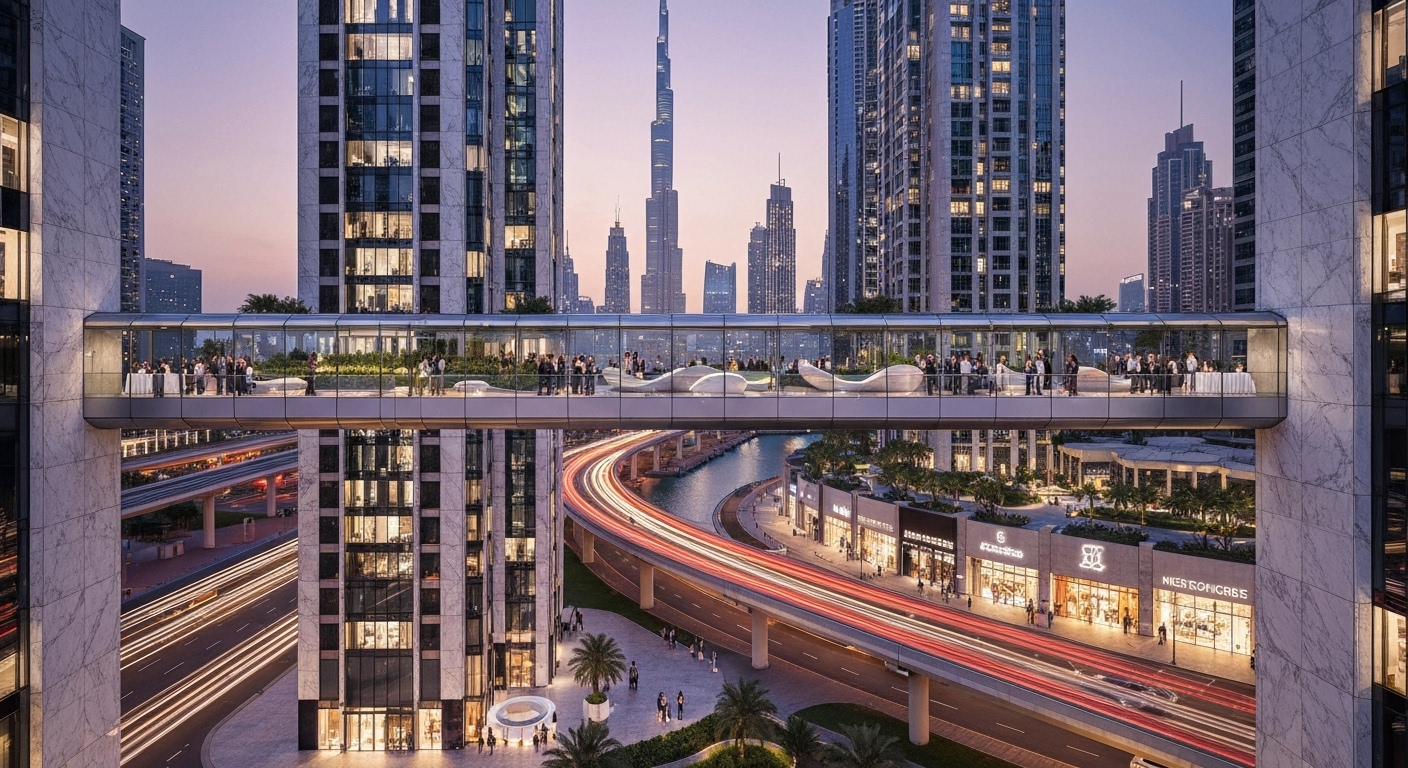Dubai stands at the forefront of global wealth migration and real estate innovation, attracting High-Net-Worth Individuals (HNIs) who seek strategic portfolio diversification. For HNIs and their advisors, commercial property in Dubai delivers a compelling blend of security, robust returns, and innovative market access distinct from traditional asset classes or even residential property. In this comprehensive guide, we unpack why Dubai’s commercial property is a prime strategic asset, explore key sectors, outline tailored investment strategies, and provide practical steps for making your next move.
Why Dubai Commercial Property is a Strategic Asset for HNI Diversification
Dubai’s commercial real estate market is renowned not only for strong governance and regulatory maturity but also for its remarkable diversity. As highlighted in market reports, Dubai’s accessible luxury and investment-friendly climate continually draws HNIs across the globe. The city’s commercial property sector, ranging from Grade A office spaces in business hubs, retail complexes, logistics, and mixed-use developments, offers attractive, robust yields and capital appreciation potential.
Commercial property developers in Dubai offer projects that cater to sophisticated investors seeking both capital growth and stable, income-producing assets. For HNIs navigating volatile global markets, Dubai’s commercial assets provide risk mitigation and a pathway to multigenerational wealth preservation.
Understanding the Dubai Commercial Property Landscape: Key Sectors and Opportunities for HNIs
Unlike many global investment destinations, Dubai’s real estate offers prolific options tailored to various risk appetites and investment goals. The commercial landscape spans:
1. Grade A Office Spaces:
Located in strategic areas like Business Bay and Dubai International Financial Centre (DIFC), these assets attract multinational tenants and ensure long-term rental stability. According to CRC Property, Business Bay recorded the highest number of office transactions in August 2025, underscoring its status as Dubai’s central business district.
2. Retail and Mixed-Use Developments:
Jumeirah Village Circle, Dubai South, and Downtown benefit from surging footfall and tourism.
3. Logistics & Warehouse Assets:
With Dubai’s positioning as a gateway between East and West, logistics parks and warehousing are increasingly preferred for institutional portfolios.
4. Innovation Hubs and Co-working Spaces:
Responding to evolving business needs and the region’s entrepreneurial drive, these are strong picks for forward-looking HNIs.
A market-responsive approach, exemplified by successful project launches and delivery records, ensures that commercial properties are designed and located to meet increasing demand while maintaining institutional-grade performance, key for those seeking to blend growth with security.
Tailored Commercial Property Investment Strategies for HNI Portfolios
For high-net-worth clients, one-size-fits-all strategies simply don’t suffice. Optimal commercial property investment hinges on:
- Asset Allocation: Identifying the ideal split between office, retail, and logistics based on current portfolio composition and risk perspective.
- Yield Optimisation: Focusing on properties with strong lease covenants and high occupancy rates ensures predictable cash flow.
- Development vs. Income-Producing Assets: Blending stable, let-and-operate properties with off-plan or value-add opportunities tailored to the HNI’s risk/reward threshold.
- Geographical Diversification: Even within Dubai, targeting multiple growth districts reduces area-specific risk.
Tailored advisory services and flexible payment plans can unlock access to high-value commercial assets often missed by less discerning investors seeking only headline yields.
Mitigating Risks and Maximizing Returns: A Guide for HNI Commercial Property Investors
Sophisticated investors and their advisors appreciate that commercial real estate is not without its complexities. Mitigating downside and maximizing upside in Dubai’s marketplace hinges on:
- Due Diligence: Rigorous background checks on asset performance, developer reputation, and sector trends.
- Partner Alignment: Working with experienced developers ensures transparency, proven delivery, and market insight.
- Regulatory Risk Management: Staying abreast of evolving freehold rules, STRATA laws, and occupancy regulations.
- Exit Strategy Planning: Opportunities for resale, refinancing, or partial exits should be clarified from day one.
Selecting development partners with a strong delivery record helps safeguard investments and enable returns that consistently outperform many Western markets, even as global conditions shift. According to Arabian Business
, Dubai’s commercial property sales and transaction values surged 271% month-on-month in July 2025, and average deal sizes more than tripled year-over-year, highlighting strong investor returns and demand for premium assets.
Navigating Regulations and Taxation for HNI Commercial Property Investments in Dubai
- Dubai’s regulatory environment is a key draw: strong governance, investor-friendly laws, and tax incentives set it apart from rival markets. Noteworthy are:
- Full Foreign Ownership: HNIs enjoy straightforward acquisition procedures for most commercial assets, without undue restrictions.
- Attractive Tax Policy: Dubai’s absence of property and capital gains taxes (for most commercial transactions) enhances net yields. The MSI Global Alliance notes that Dubai’s investor-friendly tax structure and regulatory framework continue to fuel confidence in its commercial real estate market.
- Transparent Transactions: Regulatory authorities RERA and the DLD insist on stringent KYC and documentation standards, bolstering investor confidence.
Strategic guidance on regulatory requirements, documentation, and compliance can ensure investments are both secure and streamlined.
Practical Steps for HNIs to Invest in Dubai Commercial Property
Ready to leverage Dubai’s thriving commercial sector? Here’s how discerning HNI investors can get started:
1. Conduct Portfolio Assessment:
Work with your wealth advisor to clarify objectives and risk preferences specific to commercial real estate.
2. Identify Market Opportunities:
Access high-value commercial properties available in key growth districts.
3. Undertake Rigorous Due Diligence:
Review comprehensive data, performance analytics, and legal transparency.
4. Customise Payment and Financing:
Explore innovative, HNI-friendly payment plans tailored to liquidity and leverage preferences.
5. Navigate Regulatory Formalities:
Ensure documentation, registration, and compliance requirements are fully met.
6. Monitor and Optimise:
Regularly review asset performance and explore secondary market or value enhancement opportunities.
Learning about attractive financing options, including monthly payment plans, can further improve accessibility for HNI investors.
Conclusion
For HNIs and their advisors, Dubai commercial property remains an exceptional diversification tool, balancing risk, delivering stable income, and unlocking upscale growth. Partnering with experienced developers and advisors ensures that investments enjoy security, performance, and long-term sustainability. Begin or expand your Dubai portfolio today, and embrace the strategic edge that commercial excellence can provide.




